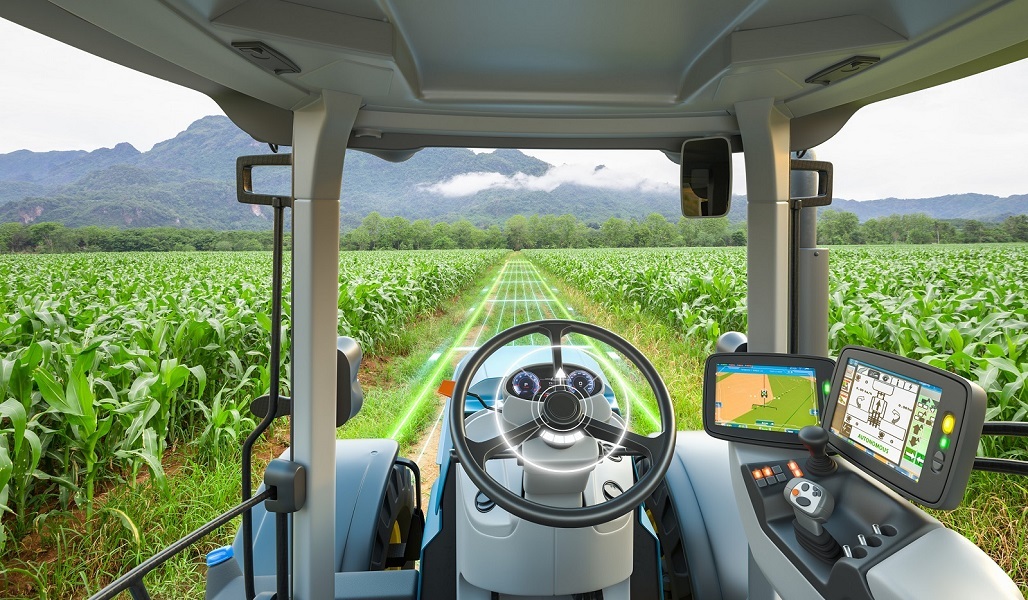Enhancing Sustainability through
Agricultural Technologies
2022/10/27

Image by Suwin on Shutterstock
Enhancing sustainability through agricultural technologies
With the increasing effects of climate change, it is evident that the agricultural industry continues to face many negative consequences. According to the Food and Agriculture Organization of the United Nations (FAO), in the decade from 2008–2018, the Asia and Pacific region suffered US$ 207 billion in crop and livestock production losses. If timely action is not taken, such losses will result in food scarcity, hunger crises, and poverty.
As world population grows, so does the demand for food. The COVID-19 pandemic has changed consumer behaviours. People are now more concerned about what they eat; the demand for organic, sustainable, and better-quality food is increasing. According to the Asia Food Challenge Report 2021, within Asia it is estimated that by 2030, consumer food spending will increase by US$ 2.4 trillion due to such attitudes and behaviour. Businesses are trying to utilise agricultural technology to overcome these challenges and meet the ever-increasing demands of the socially conscious population.
As consumers become more aware of the effects of climate change, price and taste are no longer the key criteria for their purchases. Today's consumers are concerned about food safety, and demand more accountability about their food sources. Realising the importance of this trend, coffee companies in Indonesia, the fourth largest coffee producer in the world, are incorporating blockchain technology to reassure their customers that their coffee has been sourced in an eco-friendly manner.
One of the companies using this technology is Alko Sumatra Kopi (ALKO). The company has made the entire supply chain process transparent and traceable through blockchain technology. With the real-time data available, the company can quickly identify issues at any stage of the supply chain and rectify them, thereby maintaining the high quality of its coffee beans. ALKO also gives customers the option to trace the journey of their coffee, from the farm to the cup, simply by scanning a QR code on the packaging. This practice has resulted in an increase in consumer confidence and a 40% growth in worldwide demand.
REDtone, one of Malaysia's leading integrated telecommunications and digital infrastructure service providers, is helping farmers “go digital” by providing smart farming solutions. REDtone is also advocating and encouraging farmers to adopt emerging smart farming technology by highlighting the benefits of smart farming—how smart farming can help eliminate some of the serious challenges faced by the agricultural industry. They provide farmers with a complete IoT-integrated agricultural platform that enables farmers to leverage technology to collect information, analyse data, and control various parameters of their farms, so they can make better-informed decisions. As farmers adopt new technology, they witness improved farming efficiency resulting in high-quality output and reduced labour costs, thus ensuring the sustainability of the entire value chain. For example, a greenhouse farmer that REDtone helped managed to reduce the spraying of pesticides from three times to once a week, reduced their water usage by half, and crop damage from 15% to 3%.
AIForceTech, a Chinese company providing smart farming equipment to small and large-scale farms, recently raised US$ 15 million in funding. One of their latest products, the Virtual Driver, is attached to tractors and allows farmers to perform unmanned operations. With the Virtual Driver installed, the tractors can do cultivation, levelling, planting, weeding, pesticide spraying, and other tractor-related operations 24 hours a day, seven days a week. With the help of automated tractors, the company managed to increase farm efficiency and overcome the country's significant labour shortage due to urbanisation.
Singapore also seeks to transform its agri-food industry, aiming to locally produce 30% of the country's nutritional needs by 2030—an initiative they call "30 by 30". Due to the country's limited space, farmers in this Southeast Asian country are looking for alternative ways of farming. One company, ComCrop, Singapore's pioneer in urban farming, has turned to rooftop farming. Adopting a hybrid approach to growing crops, the company uses modern indoor farming techniques and natural sunlight to balance cost and efficiency. With the help of such technologies as weather monitoring, remote monitoring, and lighting technology, the company has managed to increase its yield and ensure year-round sustainable availability of high-quality vegetables while maximising the use of limited space—and reducing labour.
Countries must adopt better and more efficient farming methods to mitigate the 21st century challenges they face—and will continue to encounter—due to climate change. With the improvements that digital agricultural technology brings to the table, it is beneficial for governments, businesses, and local farmers to work together to continue creating a sustainable food supply chain for the growing population.
